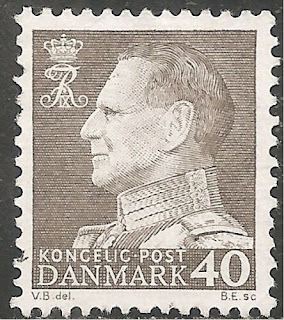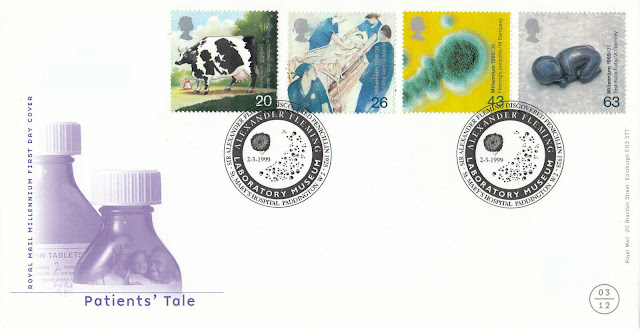1899 Born: Frederick IX of Denmark (d. 1972)
Frederick IX (Christian Frederik Franz Michael Carl Valdemar Georg; 11 March 1899 – 14 January 1972) was King of Denmark from 1947 to 1972.
Born into the House of Glücksburg, Frederick was the elder son of King Christian X and Queen Alexandrine of Denmark. He became crown prince when his father succeeded as king in 1912. As a young man, he was educated at the Royal Danish Naval Academy. In 1935, he was married to Princess Ingrid of Sweden and they had three daughters, Margrethe, Benedikte and Anne-Marie. During Nazi Germany's occupation of Denmark, Frederick acted as regent on behalf of his father from 1942 until 1943.
Frederick became king on his father's death in early 1947. During Frederick IX's reign Danish society changed rapidly, the welfare state was expanded and, as a consequence of the booming economy of the 1960s, women entered the labour market. The modernization brought new demands on the monarchy and Frederick's role as a constitutional monarch. Frederick IX died in 1972, and was succeeded by his eldest daughter, Margrethe II.
Stamps from Denmark and Greenland depicting Frederick IX
1955 Died: Alexander Fleming, Scottish biologist, pharmacologist, and botanist, Nobel Prize laureate (b. 1881)
Sir Alexander Fleming (6 August 1881 – 11 March 1955) was a Scottish biologist, physician, microbiologist, and pharmacologist. His best-known discoveries are the enzyme lysozyme in 1923 and the world's first antibiotic substance benzylpenicillin (Penicillin G) from the mould Penicillium notatum in 1928, for which he shared the Nobel Prize in Physiology or Medicine in 1945 with Howard Florey and Ernst Boris Chain. He wrote many articles on bacteriology, immunology, and chemotherapy.
Fleming was knighted for his scientific achievements in 1944. In 1999, he was named in Time magazine's list of the 100 Most Important People of the 20th century. In 2002, he was chosen in the BBC's television poll for determining the 100 Greatest Britons, and in 2009, he was also voted third "greatest Scot" in an opinion poll conducted by STV, behind only Robert Burns and William Wallace.
Stamps issued in Great Britain to commemorate Alexander Fleming
1990 – Lithuania declares itself independent from the Soviet Union.
The Act of the Re-Establishment of the State of Lithuania or Act of March 11 (Lithuanian: Aktas dėl Lietuvos nepriklausomos valstybės atstatymo) was an independence declaration by Lithuania adopted on March 11, 1990, signed by all members of the Supreme Council of the Republic of Lithuania led by Sąjūdis. The act emphasized restoration and legal continuity of the interwar-period Lithuania, which was occupied by the USSR and lost independence in June 1940. It was the first time that an occupied state declared independence from the dissolving Soviet Union.
Stamps issued by independent Lithuania in 1990





No comments:
Post a Comment